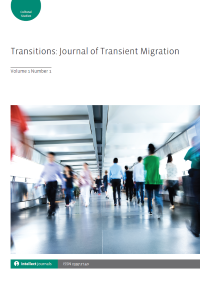
Full text loading...
 , Sopin Jitpaisan2
, Sopin Jitpaisan2 , Duangjan Mongkolchu3
, Duangjan Mongkolchu3
Informal work requires mobility. When that movement is prevented, many forms of informal work (just like in the formal sector) are disrupted because of the lack of mobility of suppliers, products, customers and other stakeholders. Lacking access to government support in these circumstances, informal sector workers are obliged to find new forms of activity and to compensate for the loss of principal streams of income. This situation was investigated through a programme of in-depth, personal interviewing with 60 respondents in a secondary city in the northeast of Thailand, Roi Et. Respondents report living on their own resources as long as they can to avoid the spectre of debt. Many seek different forms of mobility in making a living to replace what has been lost. Good relations with the state, including the police, mean that mobility restrictions can be negotiated to a certain extent and, in any case, the main focus of restrictions has been on inter-provincial rather than intra-provincial travel. While respondents are willing to be patient, a sense of resentment at the central government is evident owing to its response to the situation. The forms of resilience demonstrated by respondents are considered.

Article metrics loading...

Full text loading...
References


Publication Date:
https://doi.org/10.1386/tjtm_00050_1 Published content will be available immediately after check-out or when it is released in case of a pre-order. Please make sure to be logged in to see all available purchase options.